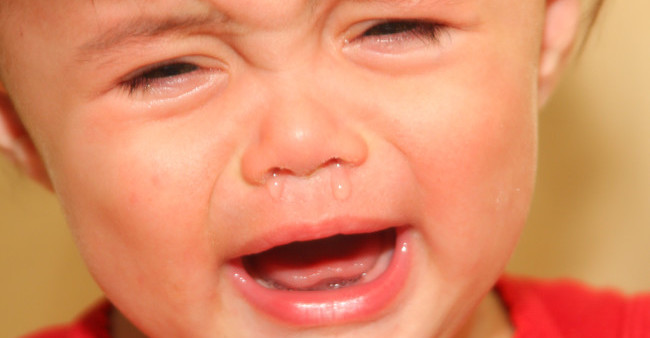 Does your anxious child notice even the smallest discomforts, like the twisted seam on a sock? Is he or she bothered by noisy places? Easily startled? Aware of even the smallest changes or details that most other children may miss?
Does your anxious child notice even the smallest discomforts, like the twisted seam on a sock? Is he or she bothered by noisy places? Easily startled? Aware of even the smallest changes or details that most other children may miss?
If so, your anxious child may also be a Highly Sensitive Person, or HSP. Don’t worry. The condition doesn’t warrant any type of treatment. It’s not a disorder. And it’s much more than just a personality type, such as being outgoing or shy. HSP is actually defined as having a hypersensitive nervous system.
The condition is genetic, according to HSP researcher Dr. Elain Aron. About 20 percent of the population is born with the condition, which affects both males and females equally. While you may automatically want to assume all HSPs are introverts, about 30 percent are extroverts.
HSP Explained
Those with hypersensitive nervous systems are much more acutely aware of, well, everything. Some trademarks of HSPs include being easily overstimulated, overwhelmed by emotional things, and highly sensitive to their surroundings.
Dr. Aron sums up the condition with the acronym DOES:
- D: Depth of processing, with HSPs processing all that surrounds them on an extremely deep level
- O: Overstimulation, which comes about from the deep processing of everything around them
- E: Emotional reactivity and empathy, with HSPs readily responding to the emotions of situations and other people
- S: Sensitive stimuli, with HSPs being exceedingly sensitive to physical things, such as light, sounds, smells and even scratchy fabrics or labels in clothing
Psychologist Dr. Ted Zeff, who wrote The Highly Sensitive Person’s Survival Guide, explains that HSPs are lacking a “natural shield” and find it tough to tune things out. That means that certain situations that may not bother others, such as someone standing too closely or looking over their shoulders, can really disturb a highly sensitive person.
What to Do about It
As already noted, HSP is not a disorder. It doesn’t require some type of “cure,” but is rather part of who some people are. While highly sensitive males in North America can be easy targets for bullies or teasing, that’s not the case in other societies that view the trait as a positive one.
Even though HSP is not something that needs to be cured, it may require a bit of management to ensure the highly sensitive person is not consistently overwhelmed. Tips include:
- Providing a nurturing environment
- Ensuring your anxious child has daily downtime in a quiet environment
- Encouraging the trait, allowing your child to remain deeply in touch with his or her emotions
- Understanding the condition without trying to quash it
- Refraining from admonishing your child for crying or showing other emotions
All HSPs are different, yet all have a deep sensitivity that can be a great asset on many fronts. They can thrive as artists, musicians, counselors, teachers and social workers. They also have a huge advantage socially because they are so aware of the needs of others.
Not sure if your anxious child is HS? Check out Dr. Aron’s parent’s questionnaire.
SOURCES:





